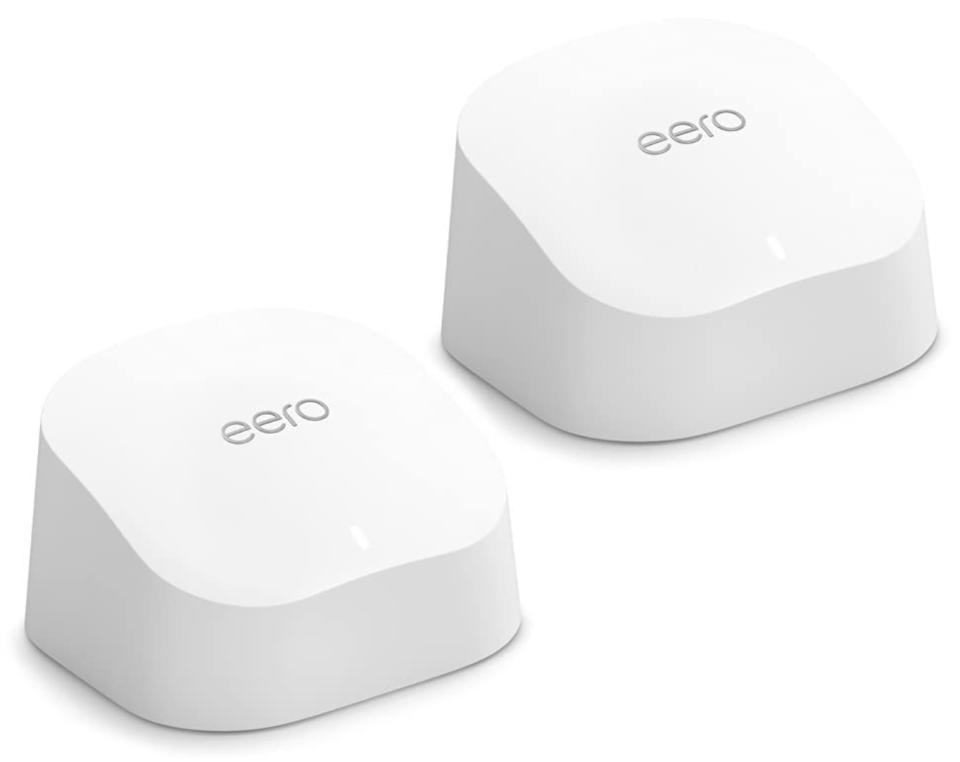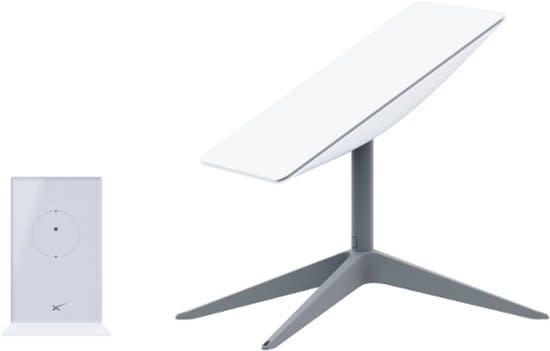What Are the Best Wi-Fi Extenders for Rural Areas? Most Affordable & Reliable Options — According to Shoppers

All products and services featured are independently chosen by editors. However, Billboard may receive a commission on orders placed through its retail links, and the retailer may receive certain auditable data for accounting purposes.
Living rural area can be a hassle when it comes to connecting your Wi-Fi and sometimes even making a phone call. Many rural locations tend to be surrounded by trees or far away from internet and cell phone towers making it harder to get a strong signal to stream TV, movies, music, gaming, taking phone calls and more.
More from Billboard
How to Watch Spain vs. Sweden Women's World Cup Soccer Match
Ariana Grande Wants 'Everyone to Experience' Cloud Pink: Shop the New Fragrance
If you’ve been struggling with your Wi-Fi signal, or the number of bars on your cell phone, there are quick solutions to help you get a better connection. But before you get started, you’ll need to narrow down a few things first.
What to Know Before You Buy a Wi-Fi Extender
We’re not in the business of selling you something that you might not need. So, before you make an unnecessary purchase, you might be able to enhance your Wi-Fi signal simply by repositioning the router. Moving your router to a central location (preferably near a window and on a shelf so it’s not near the floor) can help strengthen the signal.
Already tried moving your router? Your Wi-Fi signal probably needs a boost, but you don’t have to spend a fortune for better internet. In fact, enhancing your internet coverage can be as simple as buying a Wi-Fi extender, although you might also need to find a provider that specializes in rural internet coverage such as HughesNet, Kinetic by Windstream, EarthLink, Starlink, Frontier and Verizon.
What is the best internet for rural areas? Fiber internet, satellite internet and DSL internet are all recommended for rural areas but mobile internet could also be an option and dial-up internet is still around.
Read on for what you need to know about extenders and antennas.
Wi-Fi Extender vs. External Antenna: What’s the Difference?
What’s the difference between a Wi-Fi extender and external antenna? Technically, a Wi-Fi extender is an antenna because it amplifies the signal that you already have and distributes it internally, while an external antenna finds outside signals and distributes them inside your space. An internal Wi-Fi extender is a good choice to strengthen your signal inside, but if you want your signal to stretch even further, you might need an outdoor Wi-Fi extender.
Now that you’re up to speed on the differences between extenders and antennas, it’s time to make your purchase. To make things easier, we searched through customer reviews, Reddit forums and expert recommendations to narrow down a handful of Wi-Fi extenders for rural areas.
Best Wifi Extenders Under $200
A good Wi-Fi extender can run cost you less than $20 or up to $500 — and maybe even higher, depending on your needs and the brand name. What are some of the more affordable brands for wifi extenders? Ubiquity, Orbi, Eero and TP-Link are some of the moderately-priced options for Wi-Fi extenders under $200.

Amazon eero 6 dual-band mesh Wi-Fi 6 router and extender
Amazon’s Eero High Speed Wi-Fi 6 Router and Booster ($139.99) covers up to 3,000 square feet (compared to 1,500 square feet for the router by itself) and is recommended for Wi-Fi speeds of up to 500 Mbps.
“This system could not have been simpler to set up and once I figured out the best place for the extenders, I now have internet access throughout my whole house. No dead spots at all, like I did with the cable modem/router placed in a central position (well, as central as I could get),” wrote one Amazon reviewer in a 2,800 square-foot, 2.5-story home. “My modem and the eero hub (router) are back in my [second] floor bonus room ‘office’ where they belong, one extender is on the [third] floor where my husband is currently WFH [working from home], and the other extender is in a [second] floor bedroom at the opposite end of the house from the hub.”
The review continues, “The extenders don’t always get the highest speed, but they still get over 100 Mbps (close to the ethernet hookup with the Spectrum router). Also, at any given time there are 13 active devices on the system – more when my older daughter is home from college or my husband is using the [third] floor printer and/or his personal laptop. We have a roku on every floor and none have issues with buffering anymore.”
What is the best internet speed? Most internet speeds fall between 25-100 Mbps. The lower speed is good for anywhere from one to six people on up to seven devices, while 100 Mbps is more suited for streaming and downloading for larger groups on up to 10 devices. Videos and other content usually require 15 Mbps, but you’ll probably need at least 25-50 Mbps for UltraHD and 100 Mbps for 4K streaming.
Looking for a cheaper Wi-Fi extender? This Cryo360 Wifi extender retails for $35, it covers up to 9,000 square feet and has a 4.5-star Amazon rating.
When choosing the right Wi-Fi extender, consider the square footage, the number of devices that connect to your Wi-Fi and your streaming habits. If you have a larger space with multiple devices streaming at once, then you’ll probably want to spend more money for an extender, whereas a $35 extender might work better in a space with less devices and different streaming habits.

TP-Link AX3000 Dual-Band Wifi Extender
The TP-link AX300 Dual Band Wifi extender features four, high-performance amplifiers for room-to-room coverage that supports 4K streaming; dual-band Wi-Fi speeds up to 3Gbs (2,402 Mbps on 5 GHz and 574 Mbps on 2.4 GHz) and offers “exceptional wireless range,” per one customer review.
“TP Link is really making a name for themselves. Cannot complain. The MESH system is very swift. Moving from room to room. No network drop,”
Another customer wrote, “Excellent Wi-Fi extender. [I] needed a good signal for my backyard [TV] and music. Works great” and another raved about TP-Link’s farmhouse capabilities.
“I have a traditional farmhouse that spans three levels, with exterior cameras on the opposite corner from the router, gaming consoles upstairs directly above the router, and music and video streaming in the basement below the router. I’ve tried many different mesh router and extender configurations, however nothing has been as easy and performed as well as the TP-Link AX3000 range extender,” reads a review from Google.
Netgear comes up a lot in the search for Wi-fi extenders, but not all extenders are created equal. The EAX15 AX1800 Wi-Fi 6 Mesh Wall Plug Extender is on the more affordable side of the price list, but it didn’t work for me in a nearly 3,000-square foot home located in a rural town.
For outdoor extenders, Neatgear’s Orbi Tri Band Mesh Wifi extender scored a 4.0-star rating on Google and Netgear.com, but it’s unfortunately sold out at most retailers. The device extends your outside Wi-Fi coverage up to 2,500 square feet. It’s IP66-rated and designed to stand up to rain, sun, snow, sprinklers and dust. The extender features six, high-performance antennas and high-powered amplifiers; implicit and explicit beamforming for 2.4 and 5GHz bands and it’s MU-MIMO capable for simultaneous streaming to multiple devices. The Orbi Tri-Band extender is out of stock at Best Buy and Walmart, but you might be able to find one at Amazon and bulk sets of two or more.
Now that we’ve covered Wi-Fi, let’s talk a little briefly about cellular service. For those in need of better cell coverage in rural areas, Hiboost and Weboost cell phone signal extenders are two of the highly-recommended options that we’ve found online.

Hiboost Cell Phone Signal Booster for Home and Office, 5,500 sq ft, Boost 5G 4G LTE Data for Verizon AT&T and All U.S. Carriers, FCC Approved (10K Smart Link)
The Hiboost signal booster works with AT&T, Verizon and other phone carriers. It covers up to 5,000 square feet and it’s on sale for $484.49 at Amazon (reg $570).
Finally, if you live or work in a rural place and don’t have internet access at all, it might be time for as DIY project. Based on over two hundred customer reviews, the Starlink Standard AC Dual Band Wi-Fi System is a great option for fast and reliable internet in the middle of nowhere.

Starlink Standard AC Dual Band Wi-Fi System Kit
The Space X-engineered system provides high-speed, low-latency internet to “the most rural and remote locations around the world.” The Starlink Kit is designed for self-install and has everything you need to get online within minutes including your Starlink, Wi-Fi router, cables, and a base.
Best of Billboard
